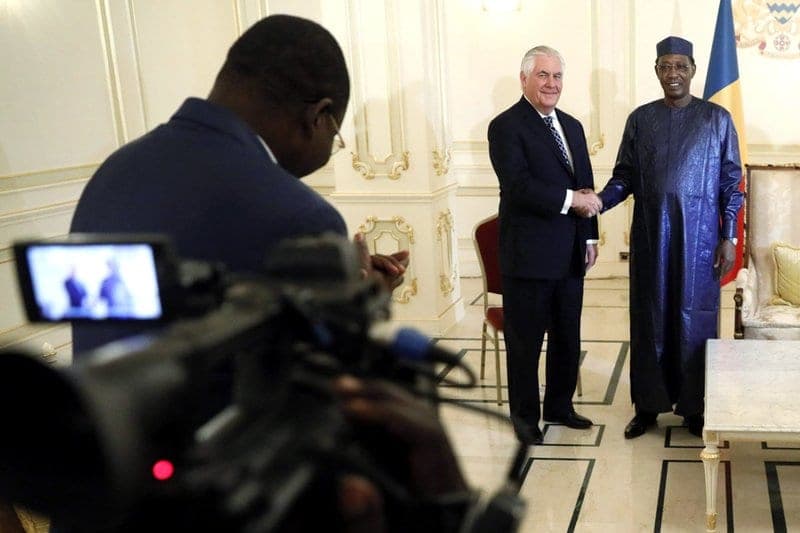YAOUNDÉ, Cameroon – In a rare rebuke of the government, bishops of Chad issued a Christmas statement accusing the African country’s leaders of not working for the best interest of the people.
The Dec. 13 message – titled “The Chad we want” – took issue with government’s handling of various situations: Educational, political and environmental.
The bishops noted that “a country which does not educate its sons and daughters consigns itself to a life of perpetual poverty.”
“The falling level of education is a reality, and no one seems in a haste to look for solutions,” the bishops’ message states.
“Those with the means prefer to send their children to study abroad, those with less means are not even doing what they could do even with the little they have.”
The bishops claimed that enormous amounts of money had been budgeted to build the country’s education infrastructure, but very often, incompetence and corruption mean that the infrastructure fails to meet the required technical standards. Schools in the villages, the bishops said, are even worse off, “without benches, as students have to sit on the ground.”
About 20 percent of the population of Chad is Catholic, while around half are Muslim. The rest mostly belong to different Protestant denominations.
Chad’s Interim Education Plan (PIET), which was budgeted in September 2017 to cover the period from 2018 to 2020 says that the country has some 40,000 classrooms, of which 23,247 (58 percent) have been built with non-durable materials, such as mud and straw, or even open-air classrooms.
The prelates said the situation was disheartening.
“The future has been compromised, not only for the country but also the youths themselves, because our children will tomorrow be family heads and leaders in society. If they see no project for the future, they will lose all confidence in their elders and those who govern them as well as in themselves and every reason to live. By frustration and discouragement, they will fall prey to alcoholism and drug abuse, which by the way is already the case with many of them.”
The bishops called on the government to rethink the educational system and promoted “the integral development of young people” by guaranteeing training that focuses on job creation.
They also called on parents to take up their responsibilities and educate their children instead of abandoning their education to the state and the church.
The bishops had a message for teachers, too. Describing them as “models to their students,” they said teachers have a right to their salaries, but insisted that the teachers cannot continue punishing school children by holding strikes to protest unpaid wages.
Questions of governance
The bishops of Chad also addressed what they called poor governance in the country, attacking political leaders for excessive corruption and the siphoning off of the nation’s wealth.
They said international rating agencies place Chad among the worst in the world in terms of governance, security, human rights access to justice, and sustainable development.
“This can be justified in a war-ravaged country or a country without resources, but is this understandable in Chad that currently enjoys stability? And which additionally is rich in resources, thanks to agriculture, livestock, fisheries, and natural resources?”
They said while the discovery of oil in Chad offered a lifeline for some, the mismanagement of the oil wealth has plunged many into poverty and worsened the degradation of moral and religious values.
The Chad we want
The country’s bishops offered a vision of what the Chadian people want. It is a Chad rooted in faith in God and in the transparent management of resources.
“Faith in God is the only thing that can lift us above greed, the spirit of domination and the law of force instead of that of love, and to bring us together in a humane community that respects people.”
They warned against the use of religion to drive hatred, injustice, violence and murder.
“God wants peace, the rule of law, justice and the wellbeing of all. Isn’t that what the Holy Bible and the Koran teach us when we go to church, the temple or the mosque?”
While noting that there was not a shortage of reasons for Chadians to feel discouraged, or even to neglect their duties as citizens, the bishops said the birth of Christ and the symbolism it brings should be enough to make them stand up for what is right.
“Our Christian faith … gives us strength to overcome external difficulties, but also our egos. Jesus, our Master and Savior whose birth we celebrate, never renounced his mission even if that led him to the cross, because after the cross, there is the resurrection,” the bishops said.
Chad is a nation still recovering from a half century of conflict. The country’s first civil war took place from 1965 to 1979 and was immediately followed by the 1979-1985 Second Chadian civil war. The most recent Chadian civil war took place from 2005 to 2010.
Like many nations along Africa’s Sahel region, Chad is predominantly Arab Muslim in the north, and Christian sub-Saharan African in the south, creating hard-to-resolve tensions.
In recent years, the country has also suffered attacks from the Nigerian Islamist group Boko Haram, and has also had a stream of refugees entering the country trying to escape the escalating conflict in the neighboring Central African Republic.
Crux is dedicated to smart, wired and independent reporting on the Vatican and worldwide Catholic Church. That kind of reporting doesn’t come cheap, and we need your support. You can help Crux by giving a small amount monthly, or with a onetime gift. Please remember, Crux is a for-profit organization, so contributions are not tax-deductible.













